At first sight, Chaga’s tumor-like appearance might look repelling, but one taste of its tea diminishes any doubts. So, you might be wondering what does Chaga tea taste like? Keep on reading to find out.
Our ancestors did a phenomenal job of discovering healing and beneficial teas in the most unusual places. Chaga tea is one of them. It is made of charcoal-looking fungus growing on birch trees.
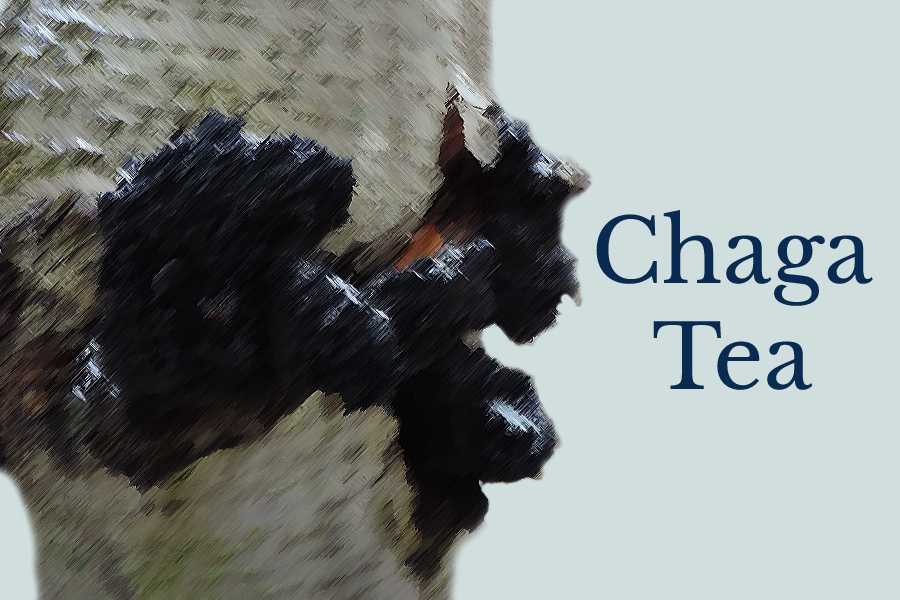
Topics Explored
- What is Chaga Tea?
- What Does it Taste Like?
- How to Prepare Chaga Tea
- Chaga Tea Benefits
- What Happens When You Drink Too Much Chaga Tea?
- FAQs
What is Chaga Tea?
Chaga tea is made of a slow-growing fungus found on birch trees in the Northern, cold region. The fungus is non-toxic and a natural health bomb, loaded with nutrients and antioxidants.
Chaga is carefully harvested only from healthy living trees. After that, it’s dried and crushed into small pieces or ground into powder.
Chaga tea is discussed in Chinese medicine thousands of years ago, but it originated in Siberia. The name comes from the Russian word for mushroom.
Chaga tea was consumed, inhaled, and even applied topically to the skin to absorb its nutrients. News of the tea’s beneficial effects quickly spread throughout the Baltic region and Eastern Europe.
What Does Chaga Tea Taste Like?
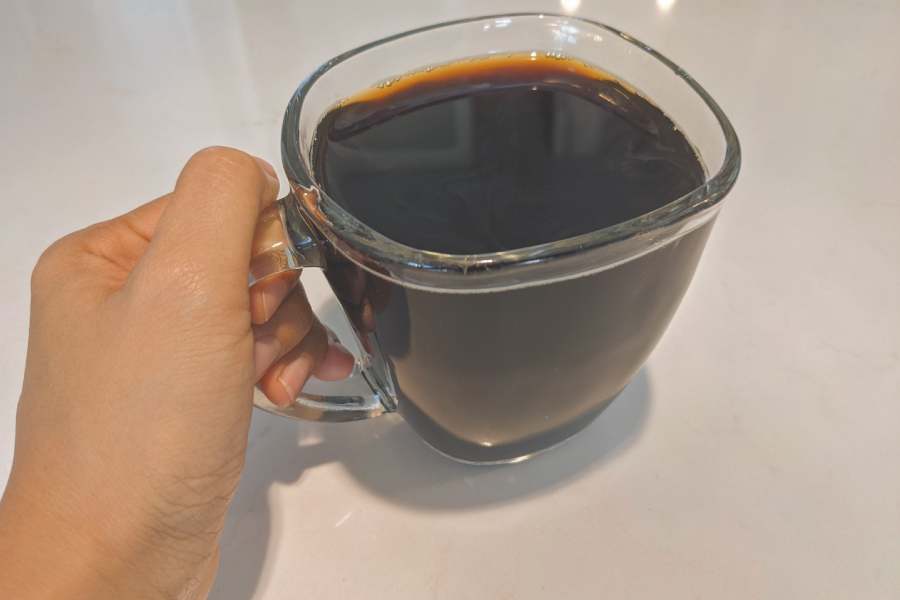
If you’re expecting a ‘mushroom-y’ taste, you’ll be disappointed. It’s hard to explain what does Chaga tea tastes like since it doesn’t have a specific punch.
It has a mild, smooth flavor, earthy, and slightly bitter with a light vanilla taste.
The taste is connected to the nutrients of the birch trees.
Flavoring Your Chaga Tea
So, you’ve got an idea of what does Chaga tea tastes like. While it doesn’t sound like much, you can easily combine chaga with other flavors.
The best mix-ins are spicy flavors, like cardamom, cinnamon, nutmeg, ginger, cloves, and allspice.
You can enhance the vanilla taste by steeping it with a vanilla bean or make a custom hot chocolate by mixing Chaga with cacao powder.
RECIPE: Brewed Cacao Recipe (Drink Of The Mayan Gods)
How to Prepare Chaga Tea?
You can make the tea from Chaga chunks or Chaga powder. Both are made from dried Chaga, but the powdered form is more convenient.
When using powdered Chaga, you have greater control over the amount you’re using and can easily follow preparation instructions.
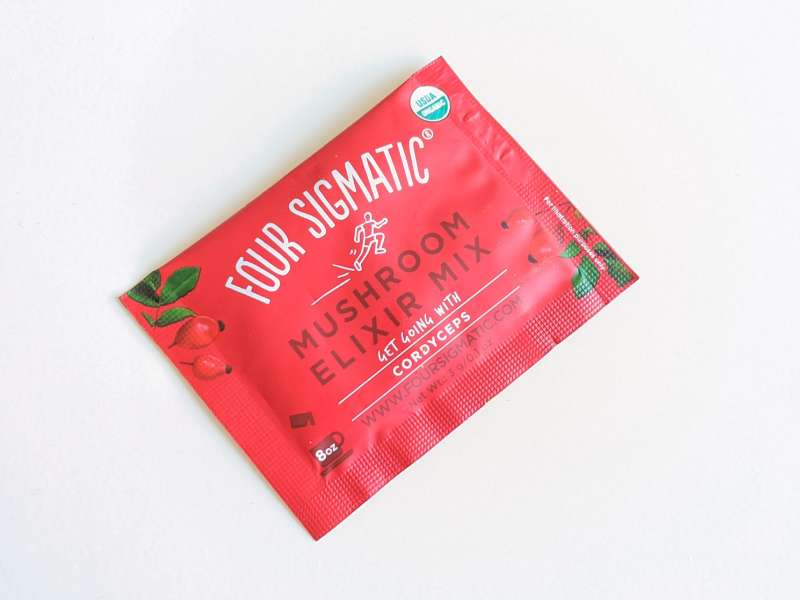
Recommended Amount
There’s not much medical or scientific guidance about the adequate daily amount of Chaga you can consume.
We did however find a document issued by Health Canada that recommends not to exceed 3.6 grams of dried Chaga per day. If you’re pregnant or breastfeeding, consult your doctor about the optimal dose.
Instructions
The only ingredients you need for authentic Chaga tea is powdered Chaga and water. The process is easy, and you’ll perfect it by the second cup!
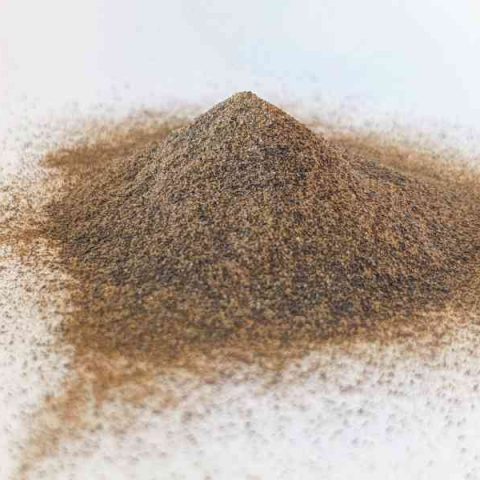
Easiest Way To Prepare Chaga Tea
Chaga tea; a sweet and earthy brew courtesy of mother nature. Don't be intimidated by how it looks and sounds. Preparing Chaga tea couldn't be any easier!
Ingredients
- Chaga Powder: 1 tbsp
- Water
Instructions
- Start with a mug with an infuser or filter. That is the most convenient way to strain the spent Chaga . If you don’t have one, you can always use to regular mug and a strainer too.
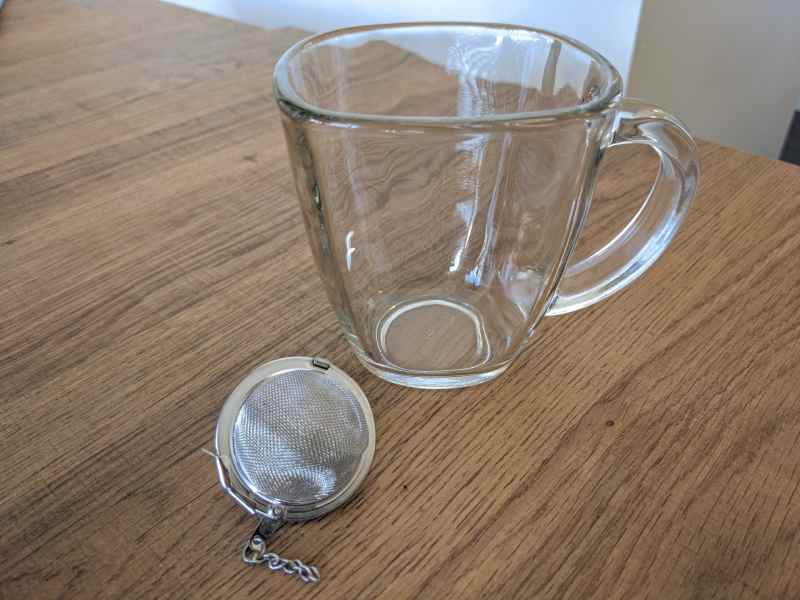
- Measure out one teaspoon or approximately 3 grams of powdered or dried chunks of Chaga. You might want to make it stronger but keep in mind the recommended daily amount.
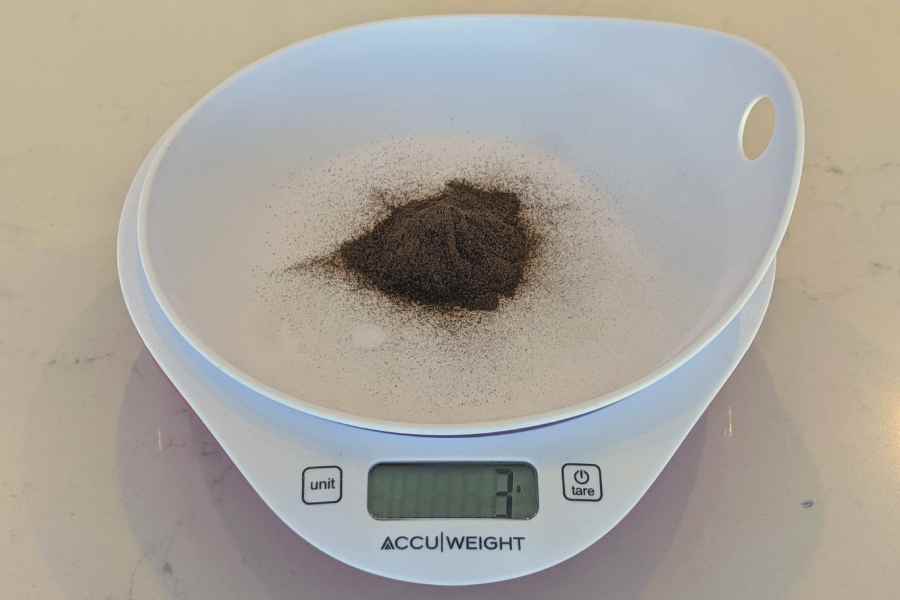
- Place Chaga in the infuser or strainer.
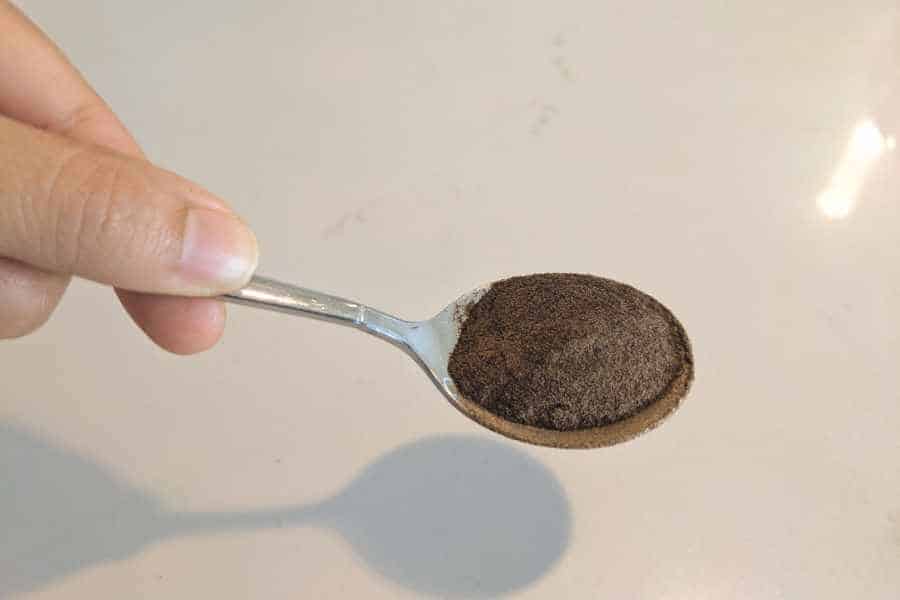
- Boil around 8 oz of water and pour it over the infuser with Chaga in the mug. Cover the mug so it will stay warm.

- Let it steep for approximately 5 to 10 minutes, then remove the infuser.

- Now is the time to add any other natural flavors, milk, or sweetener. Or try the Chaga tea plain before deciding what kind of flavor you’d like to incorporate. Enjoy!
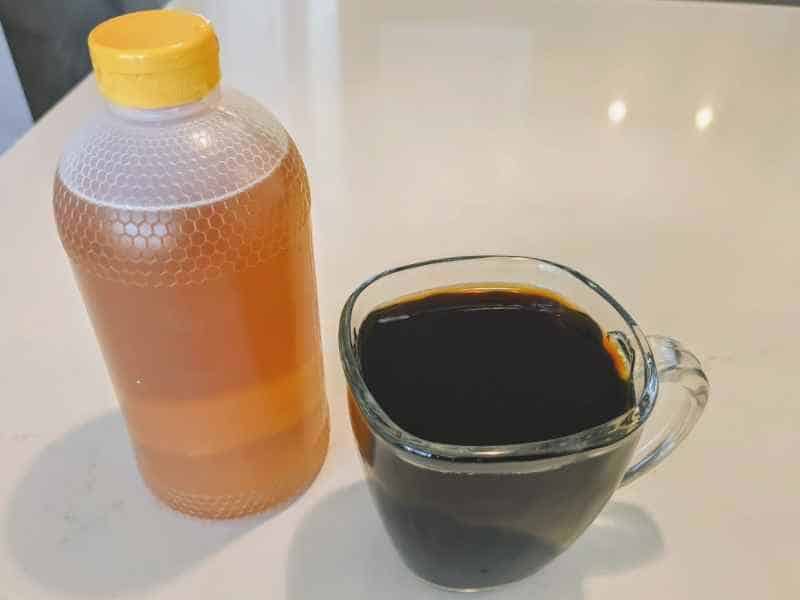
If you’re a fan of iced tea, follow the steps above, but place the plain prepared tea in the fridge for 30 minutes. Take it out, add lemon, honey, and ice cubes. You have a glass of healthy, nutritious iced tea!
Chaga Tea Benefits
Chaga is an adaptogen plant that brings your body and mind into balance and contains many benefits. It boosts your immune system, fights inflammation, prevents cancer, lowers blood sugar and cholesterol. Chaga tea can even help you deal with stress and burnout.
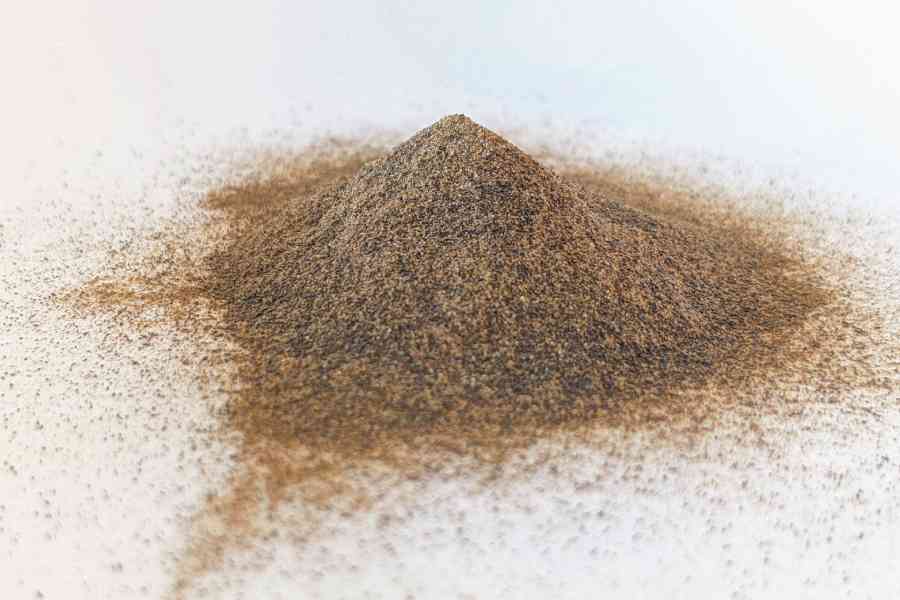
1. Acts As An Anti-Inflammatory
A healthy inflammatory system is vital for maintaining normal body function. A pair of studies(1) conducted in South Korea show that Chaga extract reduces inflammation by repressing inflammatory cytokines and preventing their production.
Chaga can help your body deal with minor inflammations or serious illnesses.
2. Lowers Blood Sugar Levels
Keeping a healthy blood sugar level is essential for your overall health. In another study performed on mice with Type-2 diabetes, Chaga extract leads to a 31% decrease in blood sugar over three weeks.
Human research is still unavailable, so the exact effect of Chaga is unclear.
3. Boosts Immune System
Chaga contains beta-D-glucans(2) which are beneficial in balancing the immune system. Chaga helps regulate proteins that work with white blood cells that are crucial for our bodies to fend off harmful foreign organisms such as germs and bacteria.
This means Chaga can help produce a better response from your immune system.
4. Can Help Fight Cancer
Several animal and test-tube studies have proven that Chaga prevents and slows cancer growth in mice and human liver cells. This is partially due to the high content of antioxidants, especially triterpene which, when used in concentrated doses, kills cancer cells.
However, more human studies are needed to confirm the anticancer effect of Chaga(2).
What Happens When You Drink Too Much Chaga Tea?
It’s easy to go overboard with Chaga tea since the recommended daily intake is merely a teaspoon.
While it does have many benefits, the side effects of consuming too much Chaga tea are not minor. Read on, especially if you’re dealing with kidney disease, diabetes, or use blood thinners.

1. Kidney Problems
People with kidney disease who have kidney stones or are at risk of developing kidney stones should never drink Chaga tea.
Chaga contains oxalate, an anti-nutrient that interferes with nutrients’ absorption, binds with calcium, and is likely to cause kidney stones.
2. Interacts With Blood Thinners
Those with bleeding disorders should avoid Chaga tea because it contains a protein that may interfere with blood clotting.
It should also be avoided by people preparing for surgery or taking blood-thinning medicine such as aspirin, warfarin and clopidogrel(3).
3. May Cause Hypoglycemia
Chaga tea lowers your blood sugar level, which indicates a risk for diabetics. It can interfere with diabetes medicines like insulin.
This can lead to your blood sugar level falling too low and causing hypoglycemia. It’s best to avoid it if you’re a diabetic on insulin(3).
Final Thoughts
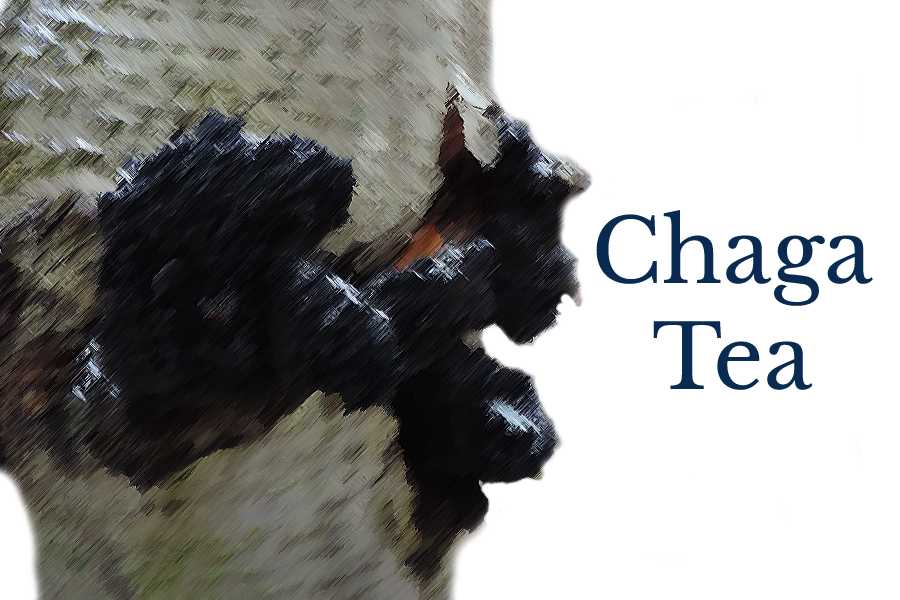
Everyone’s palate is different, so defining what does Chaga tea taste like is complicated. If you’re a fan of smooth, earthy, mildly bitter flavors, you’ll love Chaga tea. If you’re not, you can mix it with a variety of other herbs and spices!
Don’t miss out on the many benefits Chaga provides in just one cup a day.
FAQs
Does Chaga have caffeine?
Chaga doesn’t contain any caffeine whatsoever, so you can drink it before bedtime.
It may resemble black coffee or tea but there are no stimulants lurking in this brew! In fact, Chaga’s adaptogenic properties helps you unwind and sleep better after a long day.
Does Chaga tea spoil?
You need to store Chaga powder in an airtight container in a cool and dry place. If you have a large package, you can freeze it. When stored properly, Chaga has one to two years of shelf life. Expired Chaga will not make you sick, but it lacks nutrients, so using it is pointless.
Where can I buy Chaga tea?
Many reputable Chaga tea sellers clarify the source of the mushroom and provide great instructions. You can find hundreds of online retailers or scroll Amazon, where you can read some reviews too. Pay attention to the type of Chaga, powdered, or chunks and whether it’s pure or pre-mixed with other herbs.
Verified Sources
Wondering where your info comes from? We totally understand. Hey Joe only obtains our information from reputable sources. Contents from this article are sourced from the following publications:
- National Library of Medicine: https://pubmed.ncbi.nlm.nih.gov/15905055/
- Web MD: https://www.webmd.com/diet/health-benefits-chaga-tea
- Sloan Kettering Memorial Center: https://www.mskcc.org/cancer-care/integrative-medicine/herbs/chaga-mushroom

